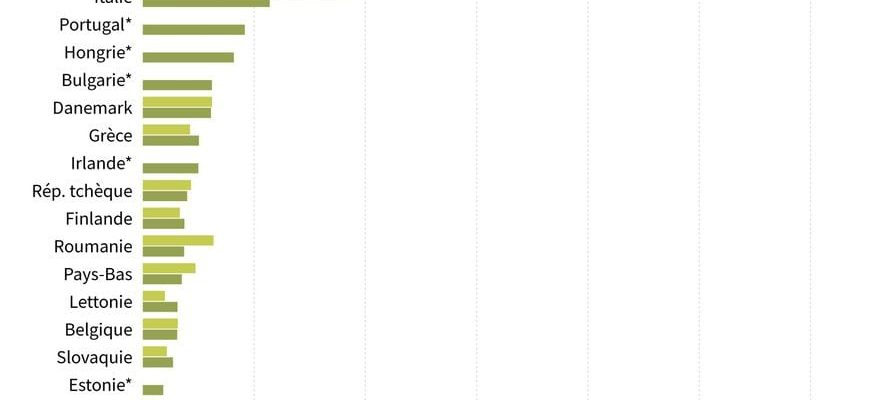EU member states failed to agree on Thursday, November 16, during a second vote on Brussels’ proposal to renew the authorization of glyphosate for ten years, we learned from sources diplomatic. The qualified majority required to validate or reject the text – i.e. 15 states out of 27, representing at least 65% of the European population – was not reached.
In a press release, the Commission indicates that it has therefore decided to renew its green light until December 2033, after the report of a European regulator estimating that the level of risk did not justify banning the controversial herbicide, whose authorization current expires mid-December.
Sales of glyphosate and glufosinate ammonium in the EU in 2017 and 2021
© / afp.com/Emma BONNEM, Anibal MAIZ CACERES
Conditions and restrictions
“The Commission, in collaboration with EU Member States, will now proceed to renew the approval of glyphosate for a period of ten years, subject to certain new conditions and restrictions,” the Commission continues.
It provides some safeguards and prohibits the use of this substance for desiccation (spreading to dry a crop before harvest).
Glyphosate, the active substance in several herbicides – including Monsanto’s Roundup, widely used around the world – was classified in 2015 as a “probable carcinogen” by the International Agency for Research on Cancer of the World Health Organization.
A lack of data
Conversely, in July, the European Food Safety Authority (EFSA) said it had not identified any “critical areas of concern” in humans, animals and the environment that would prevent authorization of the herbicide, while recognizing a lack of data.
As in a first vote on October 13, the qualified majority required to validate or reject the Commission’s proposal – i.e. 15 states out of 27, representing at least 65% of the European population – was not reached on Thursday. Seven countries, including France, Germany and Italy, abstained, according to diplomatic sources.
